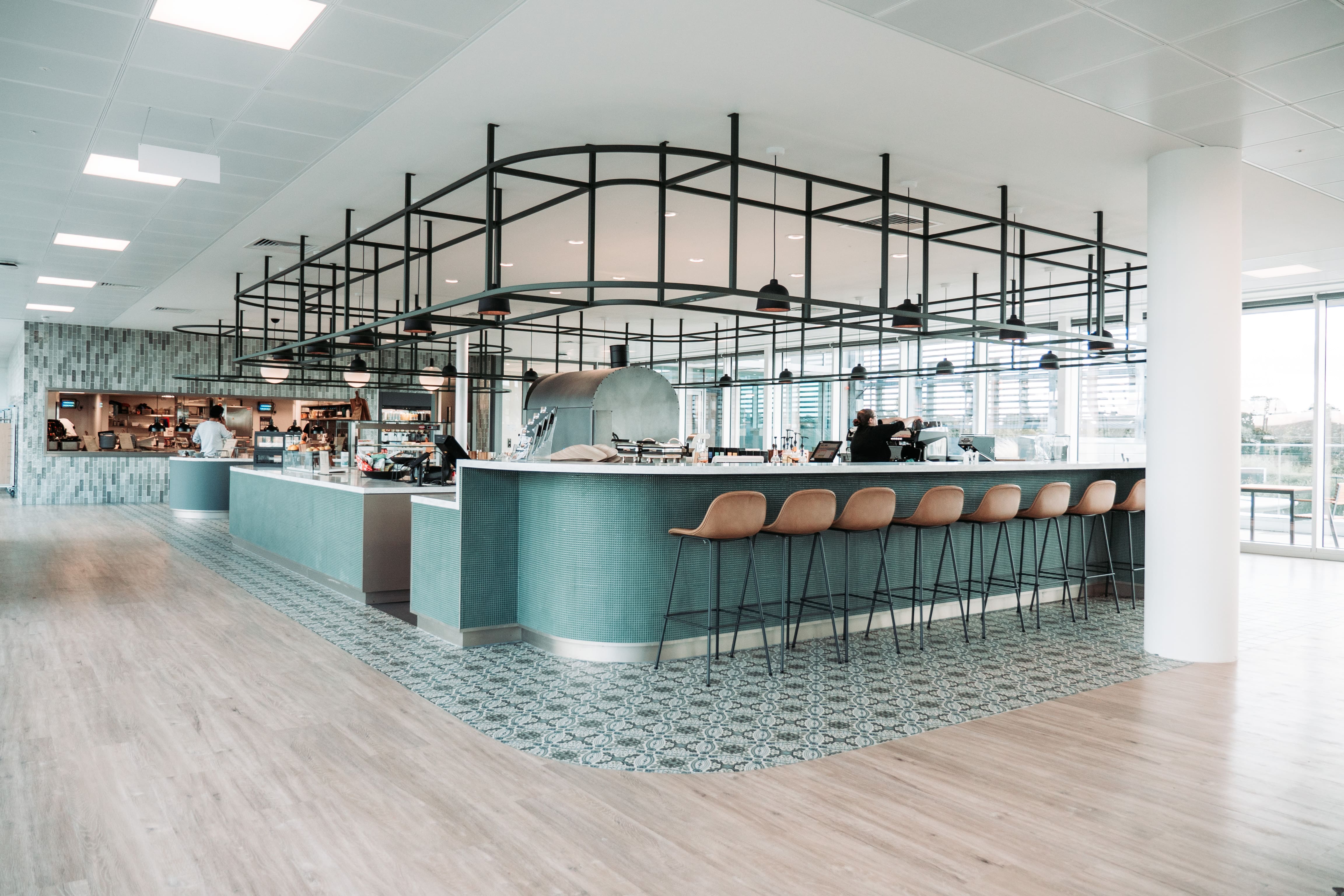Bespoke bar design plays a crucial role in shaping the ambiance and functionality of hospitality spaces in every type of venue, casual or upmarket. As a key element in the venue design, bespoke bars are carefully designed and crafted to meet the unique requirements of each establishment, reflecting the brand identity and enhancing the overall customer experience. In this article, we will delve into the key features of bespoke bar design, exploring how it contributes to the success of bars and restaurants in the UK.
1. Aesthetic Appeal
One of the primary considerations in bespoke bar design is the aesthetic appeal. Bars are no longer just functional spaces; they are also visual focal points that contribute to the overall atmosphere of a venue. Designers pay meticulous attention to materials, colours, and lighting to create a visually stunning bar that aligns with the establishment’s theme and brand identity. Whether it’s a modern and sleek design or a rustic and traditional aesthetic, bespoke bars are tailored to evoke a specific mood that resonates with the target audience.
2. Space Optimisation
Bar design is not just about how good it looks; it’s also about functionality and space optimisation. In the competitive hospitality industry, every square meter matters. Designers work closely with venue owners to create bars that maximise space usage while ensuring smooth traffic flow. From the layout of the bar counter to the placement of storage and equipment, every aspect is carefully considered to create an efficient and ergonomic workspace for waiting staff and bartenders.
3. Customisation for Brand Identity
The term “bespoke” itself implies a high level of customisation. In the hospitality industry, this means tailoring the bar design to reflect the unique brand identity of the establishment. Whether it’s a quirky and eclectic pub or an upscale cocktail lounge, bespoke bars are crafted to align seamlessly with the brand’s personality. This customisation extends to materials, finishes, and even the incorporation of branded elements, creating a cohesive and memorable experience for patrons.
4. Functionality and Ergonomics
Beyond aesthetics, bespoke bar design places a strong emphasis on functionality and ergonomics. Bartenders work in a fast-paced environment, and a well-designed bar ensures that they can efficiently serve customers while maintaining a high level of service. Features such as strategically placed workstations, easy access to glassware and ingredients, and thoughtfully designed storage solutions contribute to a seamless workflow, enhancing both the bartender’s experience and the overall customer satisfaction.
5. Integration of Technology
In the modern hospitality landscape, technology plays a significant role in enhancing the customer experience. Bespoke bar designs often incorporate integrated technology solutions, such as state-of-the-art POS systems, interactive displays, and even smart lighting. These elements not only contribute to the efficiency of bar operations but also add a contemporary and innovative touch to the overall design.
6. Sustainable Practices
With an increasing focus on sustainability, bespoke bar designs in the UK hospitality industry often prioritise eco-friendly materials and practices. Designers work to incorporate sustainable materials, energy-efficient lighting, and waste reduction strategies. This not only aligns with the growing public environmental consciousness but also resonates positively with customers who value businesses that prioritise sustainability.
7. Social Spaces
Bars have evolved beyond mere drinking establishments; they are now social spaces where friends gather to connect and engage. Bespoke bar designs often include features that encourage social interaction, such as communal seating arrangements, strategically placed mirrors, and open layouts. Creating an inviting and communal atmosphere contributes to a positive customer experience, encouraging customers to spend more time and money at the establishment.
In conclusion, bespoke bar design in the UK hospitality industry goes beyond aesthetics, encompassing functionality, customisation, technology integration, sustainability, and the creation of social spaces. The careful consideration of these key features ensures that bespoke bars not only meet the operational needs of establishments but also contribute to a unique and memorable experience for customers, ultimately enhancing the success of the venue.
Proline have worked with foodservice consultants, bar designers and installation teams on some of the leading bars in the country. We would be delighted to assist you on your next project.

